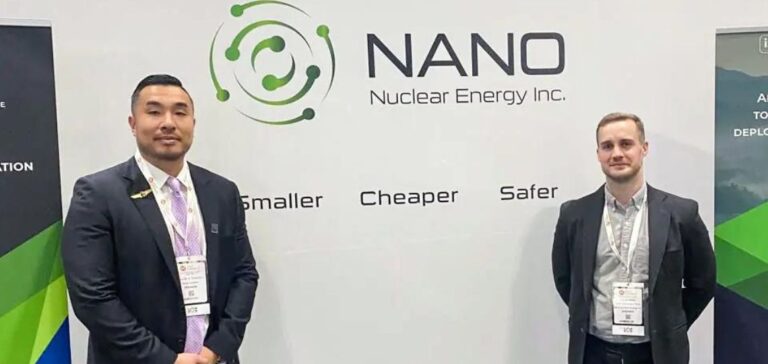NANO Nuclear Energy Inc. has announced an $18 million underwritten public offering to finance the development of its portable nuclear micro-reactors and the manufacture of HALEU (High-Assay, Low-Enriched Uranium) fuel. The shares and associated warrants were offered at a price of $20.00 per unit, enabling the company to raise the funds needed for its research and development projects.
Objectives and Use of Funds
The funds raised will be used primarily to advance the “ZEUS” and “ODIN” micro-reactor projects, as well as to establish a domestic source of HALEU fuel manufacturing in the USA. These initiatives are aimed at strengthening NANO Nuclear’s technological and industrial capabilities in the advanced nuclear power sector.
The “ZEUS” and “ODIN” reactors represent important developments for the company, offering portable and efficient energy solutions. The financing will also support the company’s business development activities and working capital requirements.
Role of Advanced Fuel Transportation Inc.
Advanced Fuel Transportation Inc. (AFT), a subsidiary of NANO Nuclear, is playing a key role in this project by being the exclusive licensee of a HALEU fuel transport basket, developed by three major US national laboratories and funded by the Department of Energy. This unique capability positions AFT as a major player in the transportation of nuclear fuel in North America.
NANO Nuclear plans to use these resources to establish a domestic supply chain for HALEU fuel, essential for its micro-reactors and other advanced nuclear reactors.
Market outlook
The announcement of this public offering comes at a time of growing demand for advanced nuclear energy solutions. NANO Nuclear’s ability to raise significant funds demonstrates investors’ confidence in its technological and commercial projects.
Challenges remain, notably in terms of development costs and regulation, but the company seems well positioned to capitalize on the opportunities offered by the advanced nuclear power market.
This $18 million round of financing is a crucial step for NANO Nuclear Energy. It will enable the company to pursue its projects for the development of nuclear micro-reactors and the manufacture of HALEU fuel, strengthening its position in the advanced nuclear energy market.






















